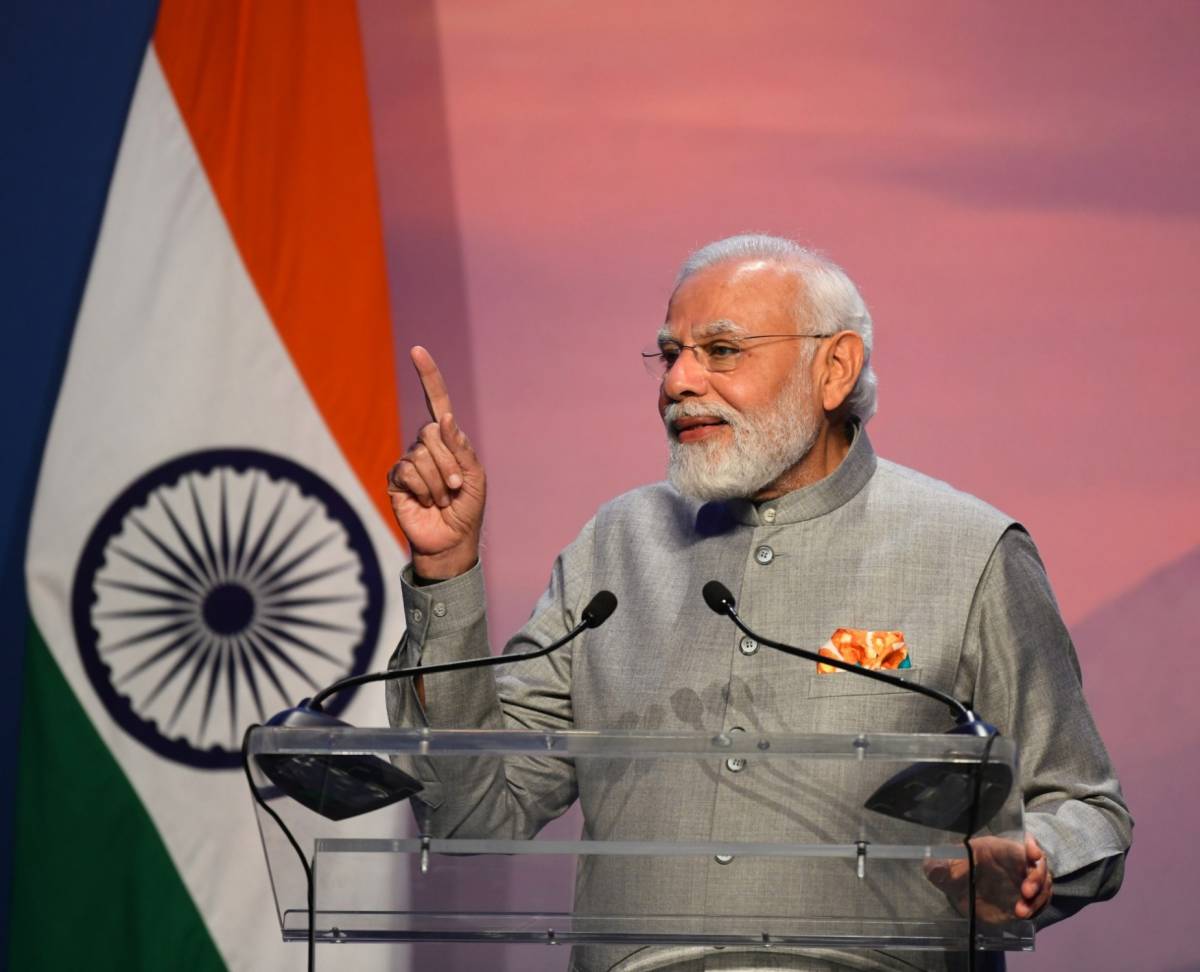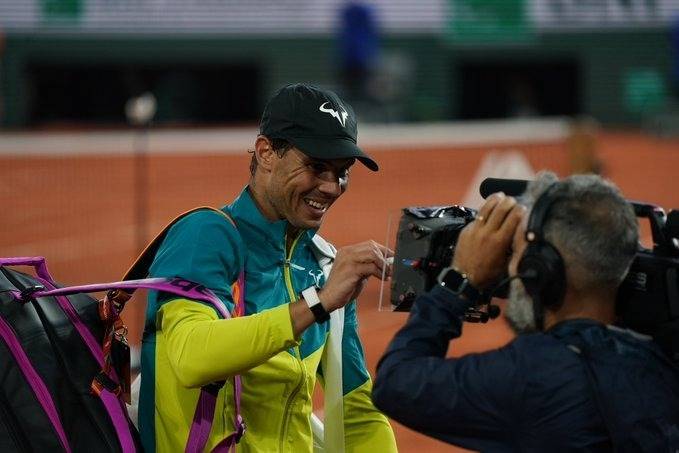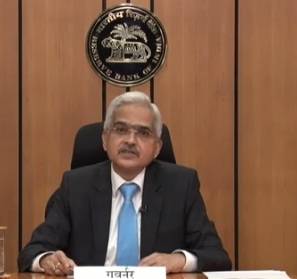Indiaphobes are pinning their expectations on a Sri Lanka type of situation brought about by inflation, lower income levels and jobs, and a possible meltdown of equity prices, writes Prof. Madhav Nalapat
Love him or hate him, Prime Minister Narendra D. Modi has transformed India. More than 300 million citizens have gained access to the internet since 2014, and an expanding range of government services now need only internet access, not a visit to a government office. Accountability is steadily entering the system. Many among Modi’s admirers may wish that the progression from broad-based invulnerability of officials to greater and greater public accountability was even faster, but what has already taken place has never before been witnessed in the 75 years of the Republic.
Outing of deficient or dishonest work by the affected citizen is now only a click away, and the official figuring in the online complaints being made by individual citizens are aware that the Head of Government has ordered that each such complaint be logged and enquired into. Speedy redressal is becoming a common occurrence, often by the same official who had in the past been lackadaisical in his or her response to a citizen’s plea for help. Direct Benefit Transfers have drastically shrunk the flow of funds going into the hands of middlemen rather than to the intended beneficiaries of such largesse. There were initially some fictitious names in the list of beneficiaries, put there by unscrupulous elements.
But under the watchful eye of the Prime Minister’s Office, such a list has shrunk to levels that will soon be insignificant. In numerous ways, transparency and accountability have been embedded into a governance system where formerly both were largely absent. None of this has made any difference to domestic and foreign Indiaphobes, who are eager to see the collapse of the world’s largest democracy in the manner now being played out in Sri Lanka. The transition of the emerald isle from stability to chaos has led to a misplaced expectation in those ill-disposed to India that the country may soon follow, a surmise already being propagated on social media.
Global economies were badly affected in 2020 not just through supply chain disruptions caused by the WHO blindly following the instructions of authorities in the PRC to enforce mass lockdowns. Of course, these lockdowns came after the WHO had failed to warn its member states of the dangers of spread of the novel coronavirus through travel, a danger that the institution initially dismissed as inexistent. Lockdowns were prescribed to manage the pandemic that Beijing itself had spread throughout the world, after having developed the novel coronavirus in the Wuhan Institute of Virology (WIV) and allowing it to leak from a lab as a consequence of deficient safety procedures.
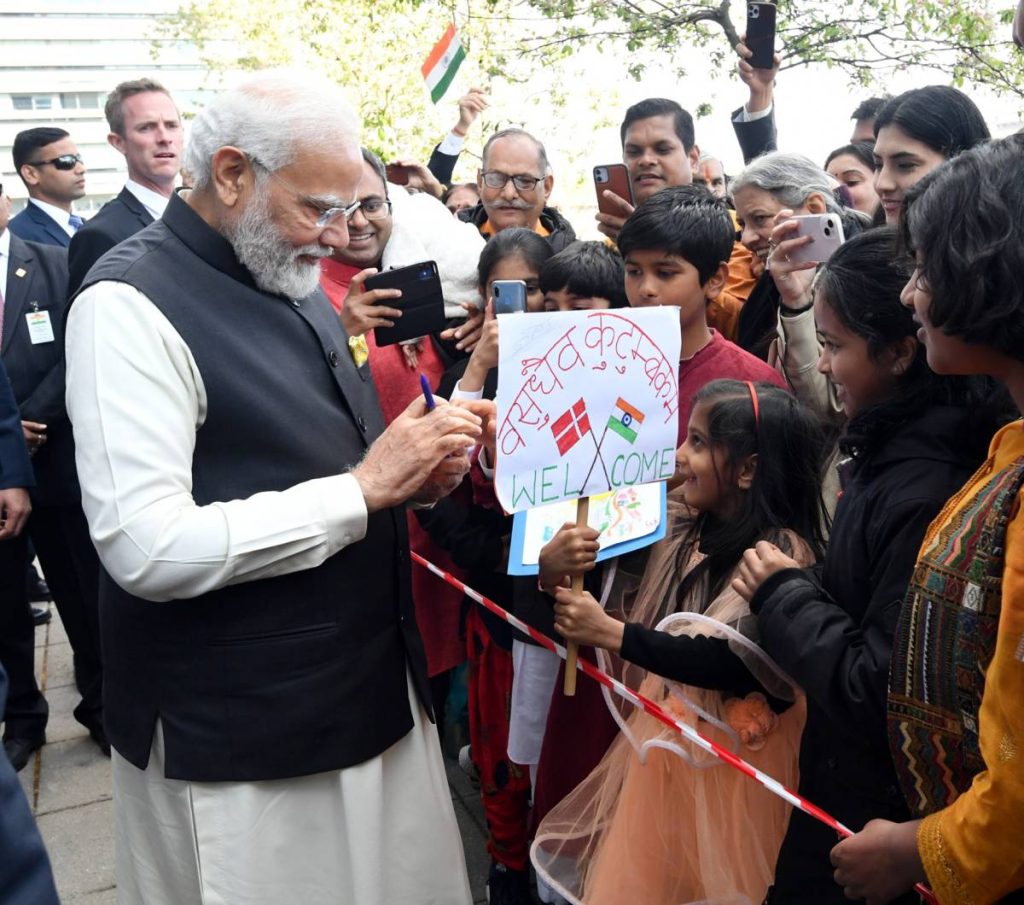
Given that the fatality rate in the population of victims of Covid-19 was low, why such an extreme job-killing, income-destroying measure was resorted to remains unknown. Meanwhile, the incoming administration under President Biden in effect gave a clean chit to the Wuhan institute, thereby triggering an early decline in the popularity of the newly elected 46th President of the United States. As for India, the country initially went along with the recommendations of the WHO in 2020 in the matter of lockdowns. After analysing that experience, and unlike the leaders of several other countries, Prime Minister Modi refused to subject the people of India and its economy to yet another set of national lockdowns in 2021, despite the incidence of Covid-19 being greater last year than during the previous one.
Equally importantly, once Modi directly intervened in the matter of production of Covid-19 vaccines towards the close of 2020, by the next year, two high-quality vaccines were being made in India, with four more in various stages of development. This was a success story by Modi that was matched only in the US under President Donald Trump, who has yet to be given the credit for the way in which Operation Warp Speed ensured the development and dissemination of vaccines in that country. In India, a world record was set in 2021 with over 1.5 billion jabs being administered in the country. Even a magazine that is routinely dismissive of India, the Economist, in a recent cover story recognised that India was on track to replicate the rapid rate of growth of China during the 1980s continuing into the 1990s. By 2024, it is expected that such a trajectory will get set in India as a consequence of changes in procedures and policies.
Indiaphobes across multiple time zones regard such a prospect as unwelcome. They would prefer that the Indian economy not recover from the shock suffered as a consequence of the WHO-recommended measures in 2020 to check the spread of Covid-19 (and which failed to do so). This when the need for double digit growth sustained over a long period is essential so as to ensure social justice and stability in a country of 1.4 billion people. While hunger in India has been banished as a consequence of the food security provided to 800 million citizens of India by Prime Minister Modi, what comes next on the agenda is rapid growth, so as to raise incomes and employment figures substantially.
In the turmoil caused by Covid-19 and thereafter Ukraine, the middle classes in particular, have been hard hit, and it is from their ranks that protests such as what took place in Egypt or Tunisia in 2011 or in Sri Lanka recently gained traction. Inflation has been a potent trigger, and to the dislocation caused by the Covid-19 pandemic has been added the disruption created not just by the war launched on Ukraine by Russia on 24 February 2022, but by the disruptive sanctions from NATO member states that followed immediately afterwards. It is unlikely that these will get reduced until winter sets in and public discontent in Europe leads to a shift in the present policy of seeking a meltdown of the Russian economy in ways that are indeed resulting in a meltdown, but of the economies imposing the sanctions more than that of Russia.
The PRC has stepped in to purchase additional quantities of the resources that are so abundant in the Russian Federation, thereby giving China an advantage over countries that are cutting off from supplies from Russia for reasons that are emotional to a degree that some aspects of this phenomenon among top policymakers in the US, EU and the UK may be termed over the top. Among such follies may be counted their efforts at preventing India from getting the benefit of abundant and lower cost Russian resources in the way that that the PRC is making full use of. It would almost appear that the US, EU and the UK do not want India and its economy to enter onto the same high growth trajectory that China enjoyed during the period when Deng Xiaoping Thought was the ruling philosophy in Beijing.
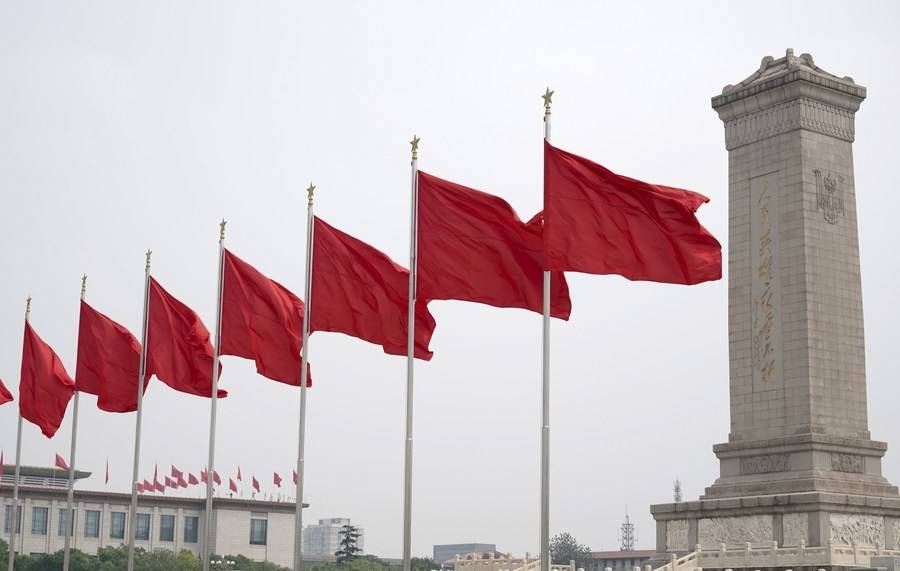
WHAT INDIAPHOBES WANT
Indiaphobes are pinning their expectations of a Sri Lanka type of situation emerging in India not on reduced food stocks or foreign exchange, as under Prime Minister Modi, both are comfortable. Instead, together with inflation, lower income levels and jobs, they are once again as in 2015 looking towards a possible meltdown of equity prices. Tens of millions of families in the middle class (already severely hit by the disruptions caused by Covid-19 and now by the aftershocks of the Ukraine sanctions) have placed a significant part of their savings in the stock market. Several are in shock as the value of their equity investments is plummeting.
This is not because of fundamentals, because under PM Modi, the fundamentals of the Indian economy are strengthening. The decline is largely the consequence of manipulative actions in select stocks by a cabal that has long operated in two stock exchanges in particular. This cabal ensures that equity is bought by middle class investors in stocks that are manipulated to first boost prices and thereafter sell to unsuspecting buyers from the middle class at unsustainable prices. Such stocks soon enter into a period of steep decline in values, but those who were responsible for selling them to unsuspecting small and medium investors have meanwhile enriched themselves. Much of that money has found its way into offshore accounts, as the RERA reforms introduced by the Modi government have made investment in real estate far easier to track than was the case under previous regimes.
Confidence in the integrity of the stock market is essential for economic growth, hence the need to ensure that a Tweedledum does not get replaced by a Tweedledee (one corrupt office-holder with another from the same or a different entity) in stock exchanges that are under suspicion of having come under the sway of unscrupulous elements who conspire to cheat investors of their savings. A look is needed into trades involving stocks that have experienced large surges and subsequent drops in value, to the detriment of small and medium investors. Such a situation reduces confidence in the market, and results in worthwhile projects getting starved of equity capital even while certain market operators profit at the cost of investors and innovators.

FRUSTRATING INDIAPHOBES
Prime Minister Narendra Modi, ably assisted by Finance Minister Nirmala Sitharaman, is paying considerable attention towards ensuring not just domestic but global confidence in India’s equity markets. The reason is that these are an engine of growth for the economy. Competitors battling to overtake domestic companies include companies from the US, UK, Japan or South Korea. These have the ability to raise debt at negligible interest in their home locations from banks or bondholders. In India, the effort during Modi 2.0 is to spur domestic capital formation through cleansing the equity and bond markets of unscrupulous manipulators.
For a Microsoft or a Google to emerge in India needs innovators to get access to funds, as their brain power usually far outruns their money power. This can come through infusion of equity and through debt. Stock exchanges kept free of colourable practices are needed for the first, and for the second, a propensity for banks to fund not just working capital but capital investment in promising startups is essential. Substantial progress has been made under the Prime Minister’s watch in working towards the creation of a favourable eco-system for start-ups. The debt market in India is as a consequence more vibrant than was the case earlier, and this process needs to be continued.
Banks continue to almost exclusively fund only the working capital requirements of most companies, with the consequence that expansion necessitates an infusion of equity through an IPO. This becomes difficult if investor confidence in the exchanges is low. It is in such a context that investor confidence in the stock market is crucial. Prime Minister Modi, assisted by Finance Minister Nirmala Sitharaman, has worked hard to ensure that the guilty are pursued and punished. Their efforts at cleansing are especially visible in the matter of an exchange that was long (mis)used by the PC network for stock market manipulations. At long last, accountability has arrived in that particular exchange, the National Stock Exchange.
This has led to efforts by the PC network cabal to ensure that the new management of the exchange consists of those with a proven track record in their current responsibilities of favouring members of the cabal at the cost of investors. The stock exchange facilitators of the cabal have no compunction in destroying investor credibility in the equity and debt markets to get windfall returns, thereby adversely impacting the development of start-ups and their transition to a bigger scale. The Prime Minister, assisted by the Finance Minister, is on track to ensure that the stock market in particular gets cleansed so as to generate a conducive atmosphere for sale of equity from genuine entrepreneurs. This is already the case in some of the countries that are partners of India in ensuring a free, open and inclusive Indo-Pacific.
To carry forward such a process, SEBI in particular needs a reboot. Its functions are both regulatory and developmental, but the latter mission has been largely ignored in SEBI’s near exclusive concentration on regulation. As the situation in parts of the equity and debt markets have revealed, such regulation by the institution has some way to go before it becomes effective in creating the ecosystem needed for double digit growth. As happened in 2015, when stock market operators who sought to weaken PM Modi because of his commitment to reform failed in their Mission Meltdown, it is certain that the Indiaphobes who look towards, and work towards, a stock market meltdown in 2022 will fail as well.
Just as the Prime Minister has chosen some very able associates within the Union Cabinet to help him carry out his mission of Superpower India by 2029, down the line of command, personnel need to be put in positions of authority who have a track record of competence and integrity. In a situation where India has powerful foes out to seek its fall into a Sri Lanka-style chaos, such moves have become mandatory. Global and domestic investors are watching to see what the team that will replace the former management of the National Stock Exchange looks like. Apart from carrying out a full and impartial investigation into what went wrong at the NSE, getting an internationally credible team in place is essential in boosting investor confidence. Those with a record of doubtful integrity, unwelcome association with tainted operators especially with a possible fiduciary motive, and who have performed poorly in generating good results their current tasks, need not apply.


